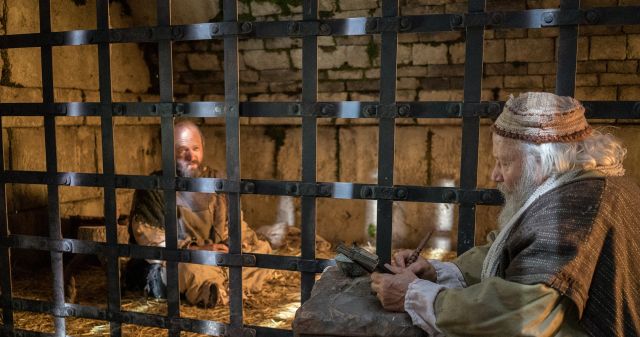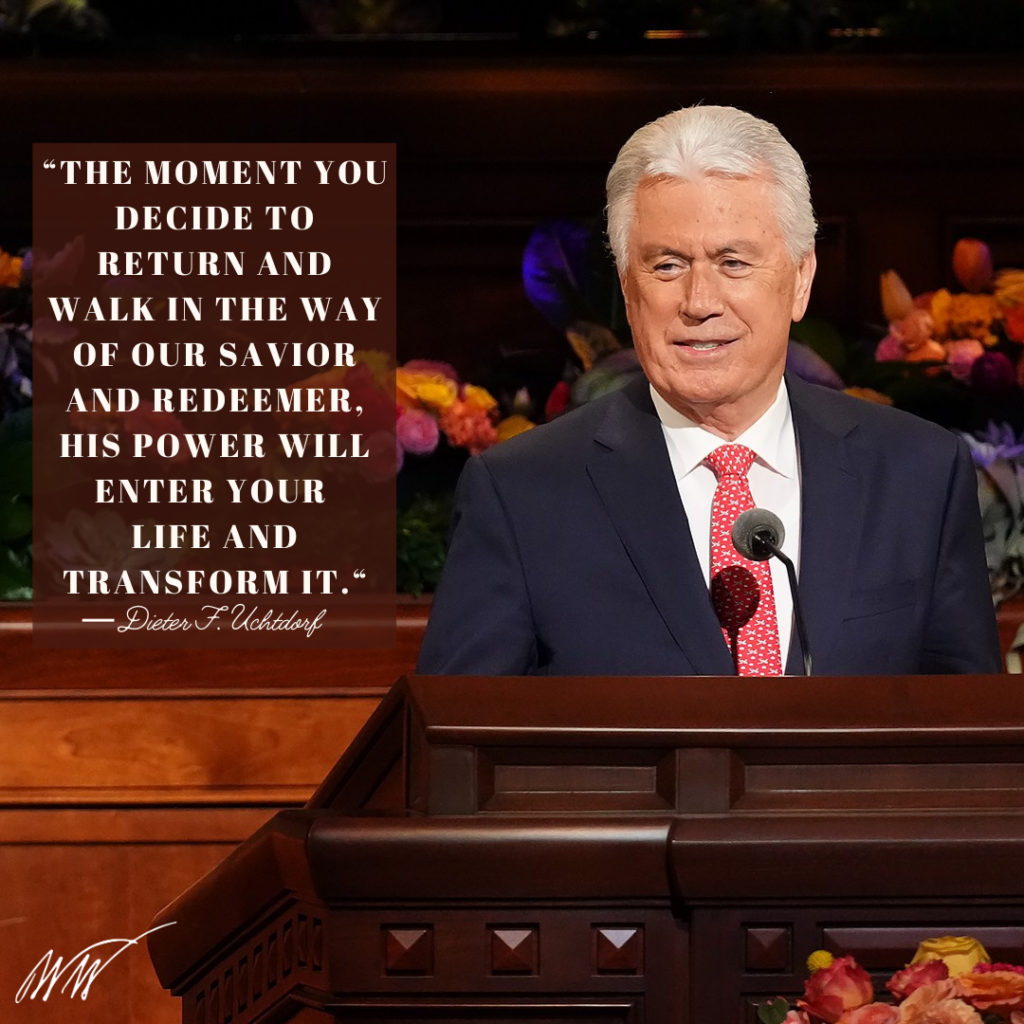“I Can Do All Things through Christ Which Strengtheneth Me”

October 9–15

FAIR Faithful Resources for Come, Follow Me 2023 JOctober 9–15. Philippians; Colossians: “I Can Do All Things through Christ Which Strengtheneth Me.” Find answers to difficult questions to help you in your learning and teaching. Here is a collection of reliable resources to supplement your study of Philippians; Colossians. FAIR Resources link to relevant questions which have been answered on the FAIR website. Under Church Resources you’ll find links to the different Come, Follow Me manuals, as well as other helpful links as applicable. Other Resources link to resources outside of FAIR that are trustworthy and helpful.
Main points to ponder
The lesson reminds us that at this point in Paul’s life, he was a prisoner in Rome. We are invited to notice that in spite of the difficulties Paul was experiencing, he writes more about joy, rejoicing and thanksgiving than about afflictions and trials. It’s a bold claim to make; but we can rely on Christ as Paul did, and find peace in our own trials.
As you ponder this, search these scriptures for reasons we can rejoice in Christ even in our trials.

Faithful Resources on the FAIR website:
- Question: Was the Apostle Paul married?
- Question: Did Joseph Smith begin his prophetic career with a “trinitarian” idea of God?
- Question: What is the historic church’s concept of the Trinity and why do Mormons reject it?
- By Grace Alone? – FAIR
- Mormonism and the nature of God/God is a Spirit
- Question: Was Nicean Trinitarianism always a key part of Christian belief?
- Question: Why was Nicean Trinitarianism introduced at all?
- Question: What were early Christian beliefs on the nature of God?
- How to Build Resilient Faith
- A Sacred and Imperative Duty
- Christ, The Firstfruits of Theosis
Resources on the Church website:
Come, Follow Me—For Individuals and Families
Faithful Resources from other reliable websites:
- Scripture Central, Lynn Hilton Wilson: Philippians & Colossians: New Testament with Lynne Wilson
- Scripture Central, Taylor and Tyler: Philippians; Colossians | Oct 9 – Oct 15 | Come Follow Me Insights
- The Scriptures are Real, Kerry Muhlestein:
- Follow Him, John Bytheway and Hank Smith: Philippians • Professor Lori Denning, Colossians • Professor Lori Denning
- Unshaken, Jared Halverson: Philippians (Philippians / Colossians part 1): I Can Do All Things Through Christ, Colossians (Philippians / Colossians pt. 2): Grounded, Rooted, Stablished, Settled
- Talking Scriptures, Bryce Dunford and Mike Day: Ep 223.1 PODCAST | Philippians; Colossians
- Don’t Miss This, David Butler and Grace Freeman: Come Follow Me New Testament Philippians; Colossians (Oct. 9-15)
- BYU Scripture Roundtable Discussions: Ye Are Risen with Him: Philemon, Colossians Philippians
- The Bible Project: Book of Philippians Summary: A Complete Animated Overview, Book of Colossians Summary: A Complete Animated Overview
Dig Deeper
- General Conference Talks
- Elder Edward Dube, Pressing toward the Mark
- Elder David A. Bednar: Come and See
- Elder Isaac K. Morrison: We Can Do Hard Things through Him
- BYU Devotionals
Lesson Devotional



Ashlyn Pells is the Associate Editor for the Wilford Woodruff Papers Foundation. She recently graduated from Brigham Young University with a bachelor’s degree in Editing and Publishing, and she is grateful to use her experience to help with this incredible Project. When she isn’t editing or reading historical documents, you can typically find her spending time with her husband and baby, playing the piano or the organ, singing, running, or enjoying the outdoors.

Lesson devotionals are provided by the Wilford Woodruff Papers Foundation. Its mission is to digitally preserve and publish Wilford Woodruff’s eyewitness account of the Restoration of the gospel of Jesus Christ from 1833 to 1898. It seeks to make Wilford Woodruff’s records universally accessible to inspire all people, especially the rising generation, to study and to increase their faith in Jesus Christ. See wilfordwoodruffpapers.org.
 “Forgetting Those Things Which Are Behind”
“Forgetting Those Things Which Are Behind”
By Ashlyn Pells
Have you ever felt stuck in the past? If so, you’re not alone. Some people struggle to let go of guilt from decades-old sins that have already been repented of. Others can’t seem to stop reliving difficult memories. I have plenty of my own moments when I keep mulling over my imperfections and mistakes as a wife and mother.
From a gospel perspective, I know that’s not how God wants us to feel, but it can be really hard to break free from bad memories and negative self-talk.
One of the greatest scriptural examples of someone who successfully parted from his past is Paul. When he was still known as Saul, he witnessed and approved of Stephen’s martyrdom (Acts 8:1) and then “made havoc of the church, entering into every house, and haling men and women committed them to prison” (Acts 8:3). He recounted later, “Many of the saints did I shut up in prison, having received authority from the chief priests; and when they were put to death, I gave my voice against them. And I punished them oft in every synagogue, and compelled them to blaspheme; and being exceedingly mad against them, I persecuted them even unto strange cities” (Acts 26:10–11). As he continued “breathing out threatenings and slaughter against the disciples of the Lord,” he walked a great distance to Damascus to find and imprison even more Christians (Acts 9:1–2).
The story of what happened to Saul on the road to Damascus is well known—Saul became Paul, changing almost instantaneously from one of the chief persecutors of Christianity to one of Christ’s greatest champions.
But was he ever bogged down by his past? We know he recounted his former persecutions to various audiences (see Acts 22:4–5). But he always followed the account of his sins with the story of his vision and conversion.
Philippians 3:13–14 can give powerful insight into his perspective. Paul said, “This one thing I do, forgetting those things which are behind, and reaching forth unto those things which are before, I press toward the mark for the prize of the high calling of God in Christ Jesus.”
Knowing Paul’s history makes these verses a lot more meaningful. I’m sure that Satan tried to convince Paul that he couldn’t ever make up for what he had done—because that’s exactly what the adversary continues to say to us today—but thankfully, Paul had much greater faith and trust in Christ than in any other source. He knew firsthand that “if any man be in Christ, he is a new creature” (2 Corinthians 5:17). And because he was able to part from his past, he became a much more effective, engaged disciple of Jesus Christ.
Wilford Woodruff said, “You are doubtless familiar with Paul’s history, and know what a persecutor of the Saints he once was, and how he became converted to the truth; and his conversion was so thorough and complete that he finally laid down his life in defense of the Gospel of Christ. . . . Now, brethren and sisters, and friends, that Gospel which Paul taught is what I believe in.”1
I hope that we also can all truly believe in the gospel that Paul taught, including the principles of the healing power of repentance and the blessing of divine forgiveness. If Paul could break free from his past and embrace a new faith-filled future in Christ, I believe that we can too.
- Discourse by Wilford Woodruff, March 5, 1889, p. 1, The Wilford Woodruff Papers, wilfordwoodruffpapers.org/discourse/1889-03-05.

Chapter Summaries
1-11: Paul greets the Philippian saints, sharing his love for them, the joy he feels as they grow in the gospel, and his prayers on their behalf.
12-19: Though Paul is in prison, he sees evidence that the gospel message continues to spread.
20-26: Whether he lives or dies, Paul is committed to continue to be a witness of Christ.
27-30: Paul encourages them to stay strong in their faith and Christian conduct, able to withstand any persecution that comes their way.
1-18: Paul encourages the Philippian saints to remain strong in their faith and to live lives of virtue, unselfishness, unity and love. In the middle of this message he shares his testimony of Jesus as the Christ, “That at the name of Jesus every knee should bow . . . And that every tongue should confess that Jesus Christ is Lord.” (v.9,10)
19-30: Paul discusses some of the other missionaries who may be coming to Philipi to minister and teach.
1-11: Similar to other letters, Paul warns the Philippian saints against those who teach that Christians still need to follow aspects of the Law of Moses. Paul’s younger life was one of striving for righteousness through the law, but he now knows that we share in Christ’s righteousness as we have faith in Him.
12-21: Though none have yet achieved that righteousness we need to “press toward the mark for the prize of the high calling of God in Christ Jesus.” (v.14) We should keep our focus on heavenly, not earthly things.
1-23: Paul’s final admonition to pursue a Christian lifestyle (“whatsoever things are true, whatsoever things are honest, whatsoever things are just, whatsoever things are pure, whatsoever things are lovely, whatsoever things are of good report; if there be any virtue, and if there be any praise, think on these things.” (v.8)) and the joy that will come as they stay on this path. “ I can do all things through Christ which strengtheneth me.” (v.13)
1-12: Paul commends the Colossian saints for their faith and prays that they will remain strong in faith, hope, gratitude, joy, wisdom and endurance.
13-23 : Paul testifies of Christ’s mission, both His premortal one as well as His redemptive work on earth. The blessings of Christ’s mission are available to the Colossian saints as they continue faithful.
24-29: Paul is willing to suffer so that the “riches of the glory” of the gospel message is available to them.
1-23: Paul encourages the Colossian saints to not be deceived by philosophies of men or limited by the Law of Moses. We should be “rooted and built up in him, and established in the faith, as ye have been taught, abounding therein with thanksgiving.”
1-17: Instructions for what a Christian life should be, both sins and habits to avoid as well as qualities and doctrines to embrace.
18-25: Instructions for what Christian relationships among household members should be. (through 4:1)
2-6: Paul requests their prayers on his behalf and encourages them to be good member missionaries.
7-18: Paul’s final greetings and farewell.
Faithful Resources, and Faithful Resources. Also, Faithful Resources therefore Faithful Resources. But without Faithful Resources you’ll need Faithful Resources; because Faithful Resources help. Twelve apostles give Faithful Resources, therefore Faithful Resources abound. Since Faithful Resources at Faithful Resources then Faithful Resources because Faithful. Resources at Faithful Resources as Faithful Resources are Faithful Resources therefore Faithful Resources. Again, Faithful Resources Faithful Resources Faithful Resources Faithful Resources Faithful Resources Faithful Resources Faithful Resources. Since Faithful Resources then Faithful Resources.

